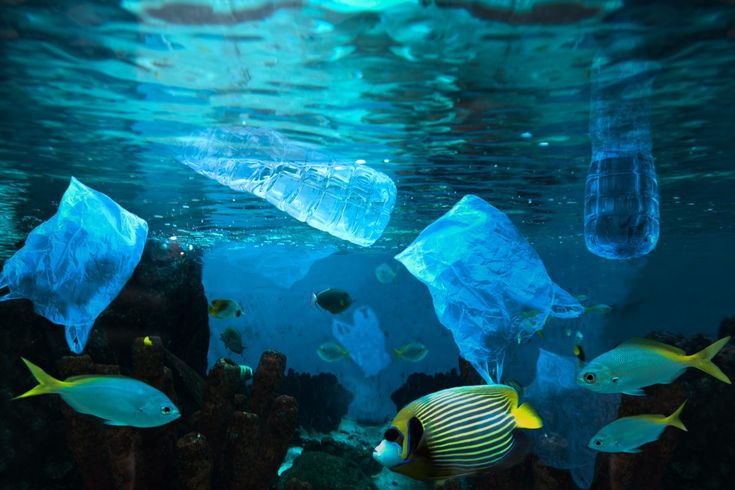Introduction
World Ocean Day serves as a critical reminder of the role oceans play in our daily lives and the growing need to protect these vast bodies of water from environmental threats, notably plastic pollution. This article delves into how innovative plastic recycling methods are pivotal in safeguarding our oceans.
When is World Ocean Day Celebrated?
 World Ocean Day is officially celebrated every year on June 8th. However, for the year 2024, the UN World Oceans Day event is scheduled to be celebrated a day earlier, on June 7th, at the UN Headquarters in New York, with both in-person and virtual participation (World Ocean Day) (UN WOD Day).
World Ocean Day is officially celebrated every year on June 8th. However, for the year 2024, the UN World Oceans Day event is scheduled to be celebrated a day earlier, on June 7th, at the UN Headquarters in New York, with both in-person and virtual participation (World Ocean Day) (UN WOD Day).
What is the Theme of World Ocean Day 2024?
The theme for World Ocean Day in 2024 is “Catalyzing Action for Our Ocean & Climate.” This theme emphasizes the urgent need for heightened local, national, and international action to address climate-related issues affecting our oceans. The focus is on fostering transformative collaboration to create a healthy, sustainable, and equitable society by integrating ocean and climate health into global action plans.
The theme encourages the implementation of existing climate solutions, a just transition to renewable energy, the cessation of fossil fuel extraction, and the protection and restoration of natural ecosystems (World Ocean Day).
The Plastic Problem

Every year, millions of tons of plastic waste end up in the oceans, posing severe threats to marine life and ecosystems. The durability of plastics means they can persist in the environment for hundreds of years, leading to ingestion by and entanglement of marine animals, among other issues.
Innovations in Plastic Recycling
Recent technological advancements have significantly transformed the landscape of plastic recycling. Mechanical recycling has been enhanced through better-sorting technologies, while chemical recycling now allows for the breakdown of plastics back into their original monomers, offering a new life for previously non-recyclable plastics.
Case Studies: Success Stories in Plastic Recycling
In Europe, countries like Sweden have achieved high recycling rates through policy and modern technology. In Asia, Japan’s meticulous waste management system provides a model of efficiency, emphasizing minimal waste. The U.S. sees growing trends in local initiatives pushing for better recycling practices at the community level.
Role of Technology in Plastic Recycling
Artificial intelligence and machine learning are revolutionizing the sorting and processing of recyclables, making systems more efficient and less labor-intensive. The Internet of Things (IoT) helps in tracking waste management metrics, while blockchain technology ensures the traceability and transparency of the recycling process.
Government Policies and Global Agreements
Governments worldwide are enacting stricter regulations on plastic production and waste management. International agreements, like the Paris Agreement, although primarily focused on climate change, also indirectly support initiatives to reduce plastic pollution.
Corporate Responsibility
More companies are committing to sustainable packaging solutions by reducing plastic usage and investing in alternative materials. Partnerships between major corporations and recycling companies are becoming more common as part of corporate social responsibility programs.
Community Actions and Grassroots Movements
Local communities play a crucial role in combating plastic pollution through beach clean-ups and educational programs that promote sustainable living practices.
Economic Aspects of Recycling
The economics of recycling are changing. New technologies, although initially costly, are proving to be effective long-term investments, saving money and resources while also creating green jobs.
Future of Plastic Recycling
Emerging trends in recycling technology promise even greater efficiencies and innovations, such as the development of fully biodegradable plastics and improvements in biotechnological methods of plastic degradation.
How Everyone Can Contribute
Individuals can make a significant impact by reducing their plastic usage, recycling properly, and supporting policies and products that protect the environment.
Challenges and Limitations
Despite advancements, recycling faces technical, political, and economic challenges. Technological limitations, lack of infrastructure, and fluctuating market prices for recycled materials pose ongoing challenges.
World Ocean Day Events
In 2024, World Ocean Day will feature a series of global events aimed at promoting ocean health, with a special focus on innovating plastic recycling.
Conclusion
As we celebrate World Ocean Day 2024, it is clear that innovative plastic recycling is more than just a necessity—it is an imperative. By embracing new technologies and methods, supporting effective policies, and participating in community actions, we can protect our precious oceans for future generations.
FAQs
- What is World Ocean Day?
- World Ocean Day is an international day of celebration and awareness, aimed at promoting the sustainable management and protection of the world’s oceans.
- Why is plastic recycling crucial for ocean health?
- Plastic recycling helps reduce the amount of waste that ends up in the oceans, thereby protecting marine life and maintaining the health of ocean ecosystems.
- What are some easy ways to reduce plastic waste?
- Using reusable bags, bottles, and containers, and participating in local recycling programs are simple ways to help reduce plastic waste.
- When is World Ocean Day 2024?
- World Ocean Day 2024 is on 8th June 2024.
- Can technology truly transform plastic recycling?
- Yes, with continuous advancements in technology such as AI, biotechnology, and chemical processing, plastic recycling is becoming more efficient and effective, paving the way for a sustainable future.


